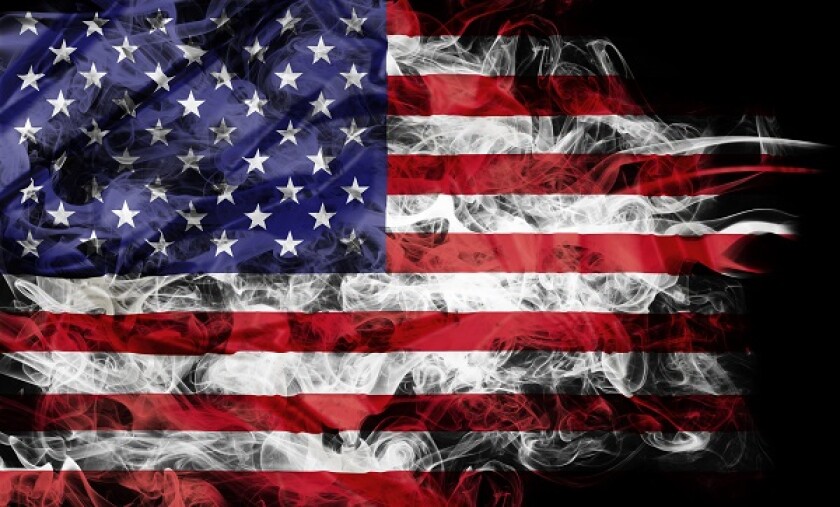In In re Alabama Tourism Department, the Trademark Trial and Appeal Board (TTAB) issued an uncommon refusal to register under Section 2(b) of the Lanham Act the mark shown below owned by the Alabama Tourism Department (ATD), on the ground that the mark includes a simulation of the United States flag. In doing so, the TTAB sent a reminder that the benefits of federal registration may not be available to marks incorporating flag designs.

A Section 2(b) analysis requires the TTAB to consider a number of factors. Section 2(b) of the Trademark Act prohibits registration of a mark that "[c]onsists of or comprises the flag or coat of arms or other insignia of the United States, or of any State or municipality, or of any foreign nation, or any simulation thereof." Refusal is appropriate if the design would be perceived by the public as a flag, regardless of whether other matter appears with or on the flag. On the other hand, the presence of some flag elements in a mark does not necessarily warrant refusal, and flags displayed in a stylised, incomplete or unique form may be eligible for registration.
Accordingly, to determine whether the ATD's mark could be registered, the TTAB examined whether: (i) the flag design would be perceived as a simulation of an actual US flag; (ii) the elements of the flag create a distinct commercial impression other than as the US flag; (iii) significant features of the US flag are missing or changed; (iv) the flag design is used to form a letter, number, or design; (v) the flag design is substantially obscured by words or designs; and (vi) the flag design is not in a shape normally seen in the US flag.
ATD, for its part, contended that the flag design in its mark was missing significant features of the US flag, formed another design, was substantially obscured by other designs in the mark and was not in a shape normally seen in the US flag, adding that the registration of other marks involving elements of the American flag justifies registration of its mark. However, the TTAB was not convinced.
After assessing and rejecting each of ATD's arguments, the TTAB affirmed the refusal to register, concluding that the flag "design shown in the proposed mark is not sufficiently altered, stylized, or merged with the other elements in the mark, so as to create a distinct commercial impression, other than as a simulation of the [US] flag," and noting that their decision was not inconsistent with the registration of the third-party marks cited by ATD.
Karen Artz Ash and Jerry Jakubovic












